Young indigenous students are the future leaders of the Amazon. However, they face many obstacles, from having to adapt to a different culture far from their families and communities to the daily discrimination and racism prevalent in our society. Nevertheless, despite these difficulties, there are stories that demonstrate the potential, resilience, and creativity of many of these young students.
In this first edition of #storiesofindigenousyouth we tell you about Felicino, an indigenous Awajún student. Felicino has found in traditional crafts a way to overcome economic difficulties, make new friends and receive the support of fellow students.
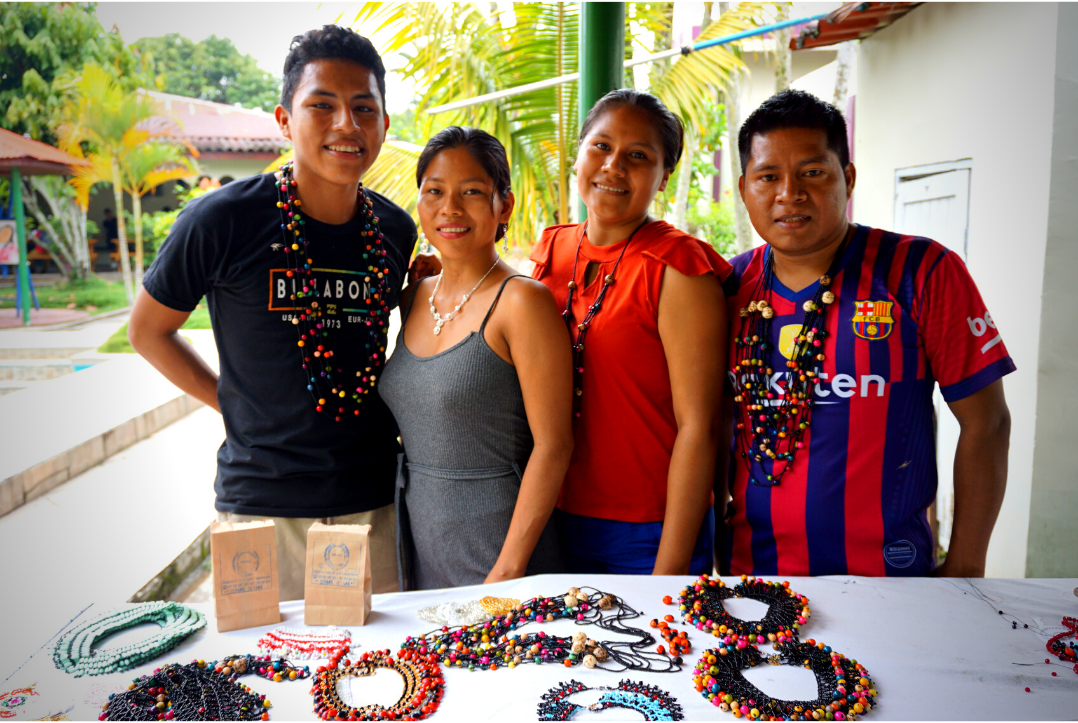
Felicino is 32 years old and is originally from the community of Yutupis, situated in the province of Condorcanqui in the Amazonas Region of Peru. He is currently in the last year of his studies to become a nurse. Although he seems to be a shy and soft-spoken young man, he is the founder of "Yaas" - an entrepreneurship that has become his passion, “I am currently here because of my studies, but I am not only dedicated to my studies. I'm also running a small business, making earrings, necklaces, based on my culture”. For the Awajun people, handicrafts are part of their culture. "This huayruro necklace is worn by brave mothers, women who lead protests. This is normally worn by the leaders. Men also wear it”
His story is not unlike that of many other indigenous university students living in our noisy city of Iquitos: to fulfill his dream of finishing higher education to help his family back home. Although being part of OEPIAP (the Organization of Indigenous Students of the Peruvian Amazon) helps him cover some basic needs, there are additional expenses related to his studies and transportation that are difficult for him to cover.
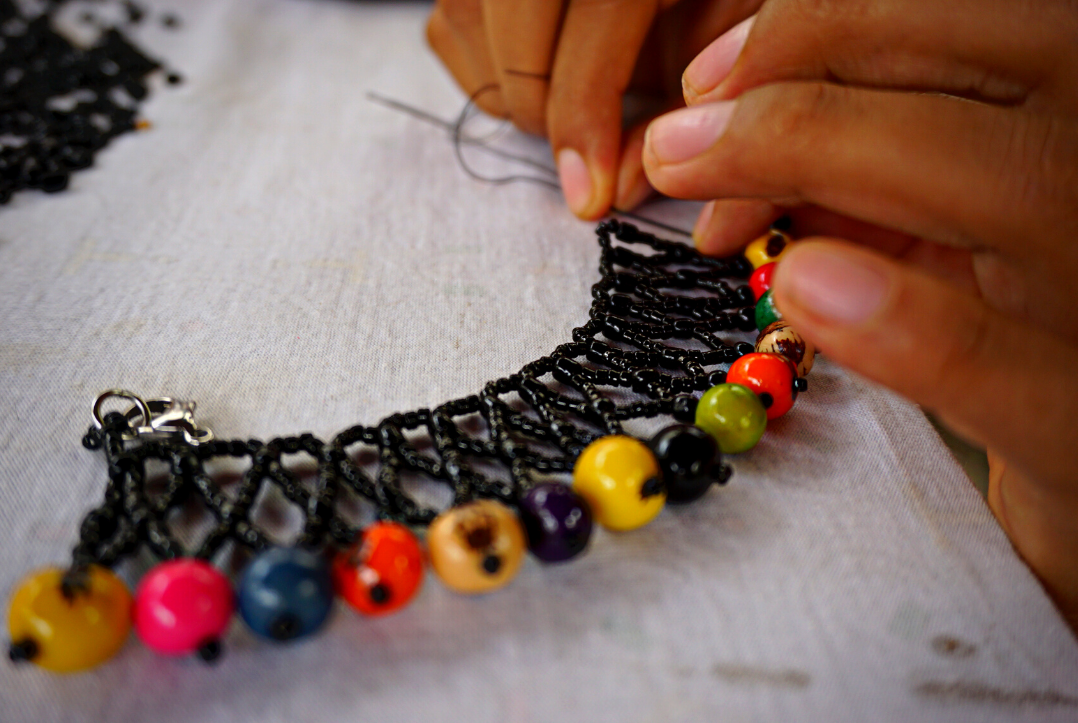
"I didn't want to be waiting for my siblings and my relatives to send me something, right?" he says as he begins to tell how he started his entrepreneurship. "A friend of mine was selling earrings, bracelets, everything, and I saw that she was making a little money. So, I also started to do it because I needed it". That's how he and another Awajún fellow decided to found "Yaas", a name Felicino chose because it refers to an Amazonian fruit called "caimito", known to be the favorite of Awajún women when they are pregnant. Like the fruit, Felicino and his partner hoped that all the women would like their handicraft too.
He learned from his mother and by watching youtube videos about traditional handicrafts and it has since become his passion. "At the beginning, I made all the handicraft myself. I would work from 6 or 7 in the morning until 12 or 2 at night. I liked it so much that I didn’t feel sleepy at all”. Now he has the support of four other Awajún students who also managed to generate a small side income through this business. Euner, a student of International Business and Tourism, supported Yass' presence and growth in social media.
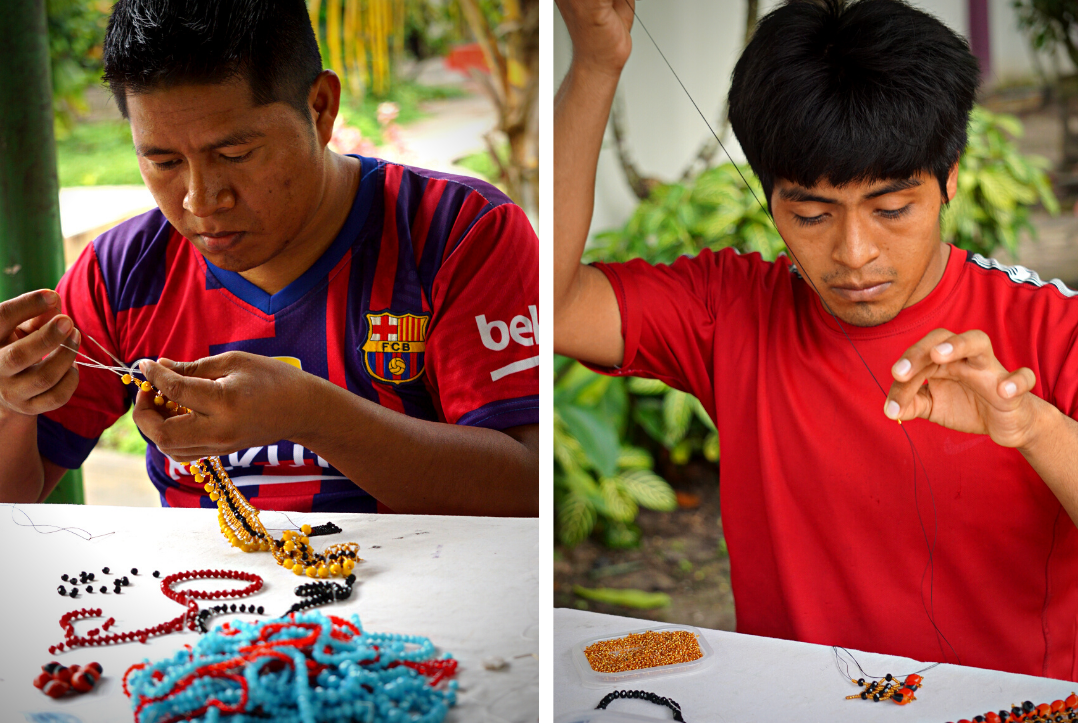
Felicino's dream is to see his crafts sold in stores and he is hopeful about his business. "I don't have a lot of savings. I am working, but I feel that I am growing. My business is growing. Before I had just a little, but now I have more. I also have a lot of necklaces that I am making. I would like to have a store… I want to have a store and say that I am selling Awajún necklaces”.
We are convinced of the enormous potential of these young students, and we are confident that with their effort and hard work they will continue to grow.
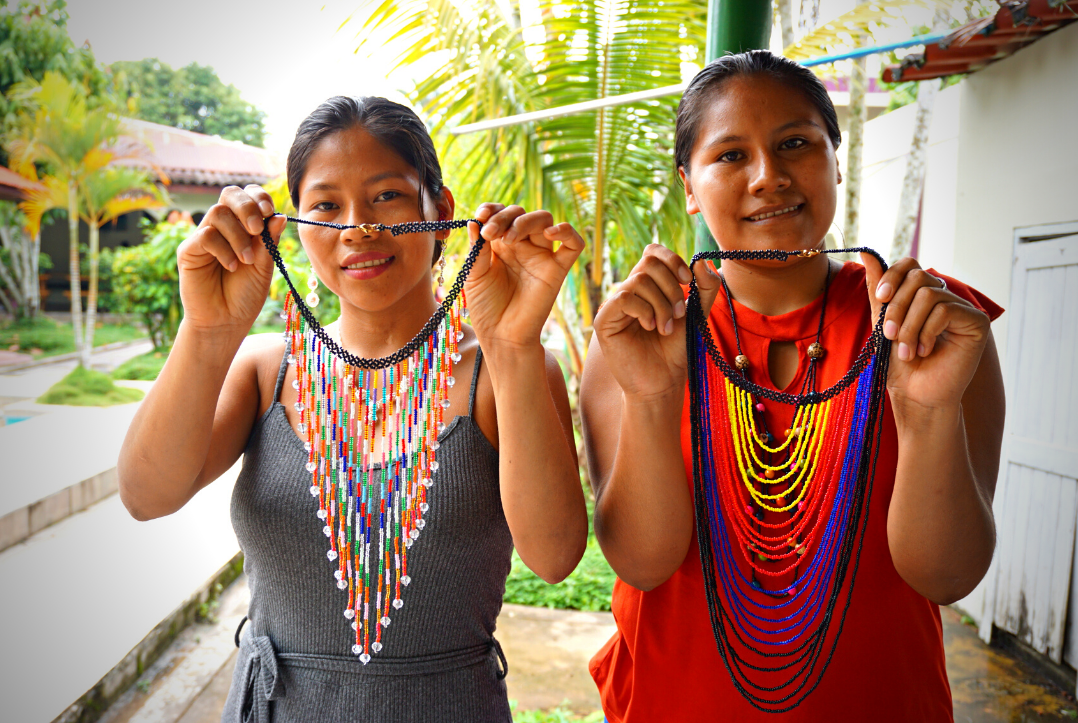
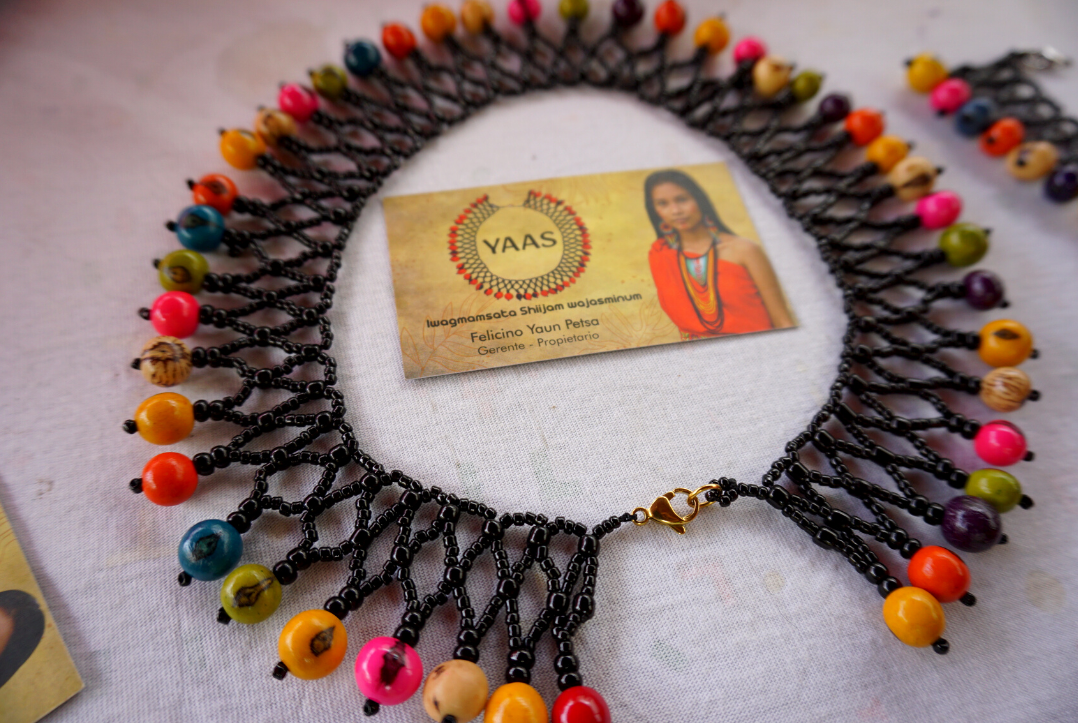
We believe in intercultural education as a means of creating an inclusive, diverse, and equitable society that honors and celebrates its constituent cultures and identities. Since 2014, we have been working in partnership with OEPIAP promoting interculturality in the educational system, providing support to improve access to higher education and sound basic living conditions for the indigenous students in the city of Iquitos.
We invite you to follow Yass on Facebook and Instagram to support this story of entrepreneurship.

